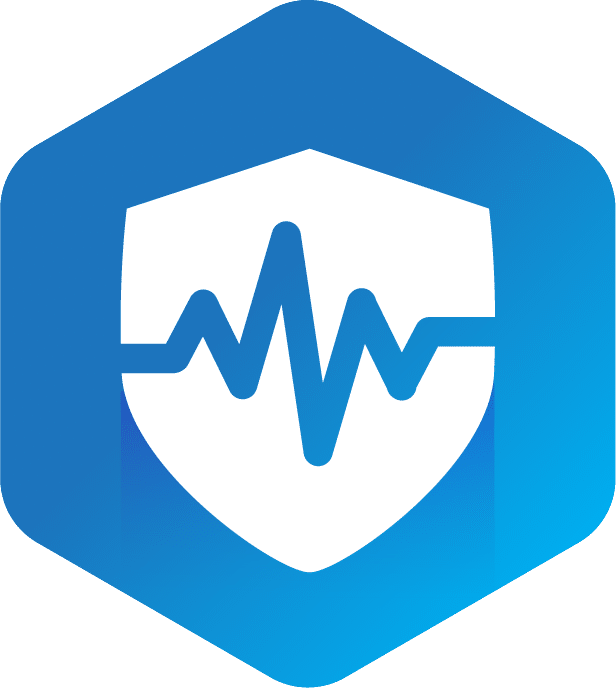HIPAA law establishes stringent standards to protect protected health information (PHI) through the Privacy Rule and Security Rule. It mandates covered entities, such as healthcare providers and insurers, to safeguard PHI, which includes personal identifiers like names and Social Security numbers. The Privacy Rule sets national standards for privacy protection, while the Security Rule enforces safeguards for electronic PHI through administrative, physical, and technical measures. Compliance is overseen by the Office for Civil Rights (OCR), with penalties for violations. Understanding these regulations is essential for maintaining trust and legal compliance in healthcare environments, offering a thorough insight into securing health information.
In the field of healthcare regulation, the Health Insurance Portability and Accountability Act (HIPAA) establishes the foundational standards for safeguarding protected health information (PHI) and guaranteeing patient privacy.
HIPAA regulations mandate strict protocols for healthcare data privacy, encompassing various facets such as the Privacy Rule, Security Rule, and the HITECH Act Breach Notification Rule.
These rules apply to covered entities, including healthcare providers, insurance companies, and pharmacies, as well as their business associates who handle PHI.
The objective is to safeguard PHI from unauthorized access and breaches, while still enabling the necessary flow of information for patient care, treatment, and research.
Enforcement by the Department of Health and Human Services’ Office for Civil Rights (HHS OCR) ensures compliance.
Protected Health Information (PHI) encompasses any identifiable health data that relates to an individual’s physical or mental health, healthcare services provided, or payment for those services. PHI identifiers include names, addresses, birth dates, and Social Security numbers. These identifiers enable direct or indirect identification of individuals.
Additionally, PHI extends to email addresses, URLs, and biometric data, each contributing to the extensive protection under HIPAA. It is essential to recognize that PHI does not encompass employment and education records, which are excluded from its scope.
The Privacy Rule establishes national standards to protect individuals’ medical records and other personal health information. This regulation mandates robust privacy safeguards to guarantee data protection and uphold stringent confidentiality standards.
Healthcare entities must conduct compliance audits to verify adherence to these mandates. The rule outlines permissible uses and disclosures of protected health information, balancing patient privacy with essential healthcare operations.
Covered entities, encompassing healthcare providers, insurance companies, and pharmacies, are obligated to comply with HIPAA regulations to guarantee the protection of patient health information.
Healthcare providers include doctors, clinics, and hospitals, who must make sure that patient data remains confidential and secure.
Insurance companies are equally responsible for safeguarding the health information they process and store, ensuring it is only used and disclosed in accordance with HIPAA guidelines.
Pharmacies, as key players in the healthcare ecosystem, must also adhere strictly to these standards to protect patient privacy.
Compliance with HIPAA by these covered entities is essential to maintain trust, uphold data integrity, and avoid potential legal ramifications for breaches of patient health information.
Building upon the responsibilities of covered entities, the HIPAA Security Rule institutes rigorous standards to safeguard electronic protected health information (ePHI) through thorough administrative, physical, and technical safeguards. These security safeguards are designed to guarantee the confidentiality, integrity, and availability of ePHI, thereby mitigating risks associated with unauthorized access or breaches.
Compliance standards mandate covered entities to implement all-encompassing policies and procedures, conduct routine security risk analyses, and adhere to best practices in data protection. This rule emphasizes the importance of regular staff training, contingency planning, and the use of encryption and access controls.
In response to increasing concerns about data breaches, the HITECH Act Breach Notification Rule mandates that covered entities promptly notify affected individuals and the Department of Health and Human Services (HHS) in the event of unsecured protected health information (PHI) breaches.
The breach response and notification process must take place without unreasonable delay and within 60 days of discovery. The legal implications of failing to adhere to these requirements are significant, potentially resulting in substantial fines and penalties.
Thorough documentation and timely communication are critical components of effective breach management. Understanding the intricacies of this rule guarantees organizations are prepared to address data breaches, safeguarding both patient information and institutional compliance.
Business associates play a crucial role in the healthcare ecosystem by performing functions or activities that involve the use or disclosure of protected health information (PHI) on behalf of covered entities. These entities must guarantee compliance through business associate agreements, which delineate the responsibilities and liabilities of each party.
Such agreements safeguard PHI by mandating adherence to HIPAA regulations, thereby minimizing risks of breaches. Business associates are accountable for implementing administrative, physical, and technical safeguards to protect PHI. Failure to comply can result in significant legal and financial repercussions.
As a result, both covered entities and business associates must rigorously uphold their responsibilities to maintain the integrity and security of PHI, ensuring robust HIPAA compliance standards are met.
Patients have the essential right to access, examine, and obtain copies of their health records as stipulated by HIPAA regulations. This right guarantees that individuals can review their medical records, thereby promoting transparency and patient engagement. Access rights empower patients to manage their health more effectively and verify the accuracy of their health data.
Additionally, HIPAA’s privacy protections safeguard sensitive health information from unauthorized access and breaches, maintaining the confidentiality and integrity of medical records. Covered entities must comply by providing timely access to records upon request, thereby upholding the legal standards set forth to protect patient privacy and trust.
Understanding these rights is vital for both patients and healthcare providers in fostering a secure healthcare environment.
While patient rights guarantee access to personal health records, HIPAA regulations also outline specific circumstances where information sharing is permissible to facilitate patient care, treatment, and research.
Data exchange between healthcare providers is essential for coordinated care, ensuring that patients receive timely and accurate treatments. HIPAA permits health information sharing with researchers under stringent conditions, balancing the benefits of medical research implications with privacy protections.
Covered entities must adhere to minimum necessary standards, disclosing only the information needed for the intended purpose. Additionally, information sharing is allowed for public health activities, such as controlling disease outbreaks. These guidelines guarantee that data exchange is conducted responsibly, prioritizing patient confidentiality and trust.
Ensuring HIPAA compliance necessitates the thorough implementation of administrative, physical, and technical safeguards to protect electronic protected health information (ePHI). Security safeguards are paramount, encompassing policies, procedures, and technology to maintain the confidentiality, integrity, and availability of ePHI.
Compliance strategies include conducting detailed Security Risk Analyses, enforcing robust access controls, and ensuring regular employee training. Administrative safeguards involve workforce training and security management processes, while physical safeguards require secure facility access and device management.
Technical safeguards focus on encryption and secure data transmission. Covered entities and business associates must consistently apply these measures to mitigate risks and achieve compliance, thereby safeguarding sensitive health information from unauthorized access and breaches.
Violations of HIPAA regulations can lead to significant civil and criminal penalties, underscoring the importance of strict adherence to compliance standards. Enforcement practices by the Office for Civil Rights (OCR) include investigations, audits, and fines based on the severity of violations.
Penalty guidelines categorize violations into four tiers, ranging from unknowing breaches to willful neglect without correction, with fines ranging from $100 to $50,000 per violation. Criminal penalties may involve fines and imprisonment for knowing misuse of protected health information (PHI).
Ensuring compliance through regular audits, training, and rigorous enforcement practices is essential for healthcare entities to avoid these severe penalties and maintain the integrity of PHI.
To conclude, HIPAA law acts as a critical framework for safeguarding protected health information through stringent regulations and compliance measures.
Importantly, non-compliance can result in severe penalties, with fines reaching up to $1.5 million per year for violations of an identical provision.
The enforcement by HHS OCR underscores the necessity for robust security protocols and adherence to HIPAA guidelines.
The legislation’s multifaceted approach guarantees thorough protection of individuals’ health data.

